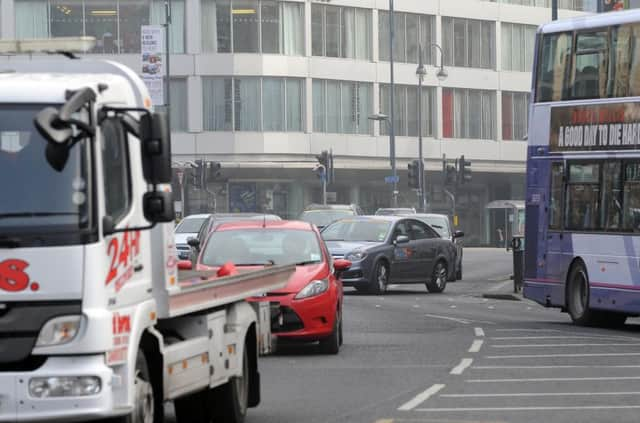Congestion charges around the world - and why Leeds scheme can be catalyst to cleaner air


Drivers could be charged upwards of £12.50 each time they enter a new ‘Clean Air Zone’ under the new scheme, which is also being embraced by Birmingham, Nottingham, Derby and Southampton.
Ten years ago the announcement would have been met with a massive public outcry but with Yorkshire’s road infrastructure creaking under the sheer volume of traffic, and widespread recognition among motorists about the environmental impact of car emissions, today’s news is unlikely to face serious opposition.
Advertisement
Hide AdAdvertisement
Hide AdFor all the furore surrounding Volkswagen’s manipulation of emissions tests, cars have become cleaner over recent decades and drivers have become accustomed to ‘pollute-and-pay’ solutions such as the Vehicle Excise Licences, which are determined by individual vehicles’ emission levels.
The Clean Air Zones should see a reduction in the number of the ‘dirtiest’ vehicles that are a common sight, smell and sound in our city centres, such as lorries and buses with rattly old diesel engines.
Electric buses remain a rarity on British road, largely because of the cost and concerns about battery life, but as technological developments continue their range - and affordability - is increasing all the time and the new congestion charging in city centres should provide further incentive for the public transport authorities to think more greenly.
As well as waving the stick of congestion charging, the Government also needs to dangle a more enticing carrot if the goal of driving more people onto buses and trains is to be achieved. Electric buses and tram systems may be better for the environment and capable of creating more welcoming city centres but they are horrendously expensive to introduce and more central investment is required if air quality is to be improved.
Advertisement
Hide AdAdvertisement
Hide AdThe London congestion charge has been in place for 12 years now with mixed success: 10 years after its introduction it had led to a fall in vehicle numbers of just 10 per cent, but generated over £1bn in revenue to fund improvements to public transport and cycling and walking schemes.
In the last few years a host of British cities including Sheffield, Manchester and York have flirted with the idea of following London’s lead only for the authorities to yield to public opposition.
The tendency for politicians to feel more strongly about saving their own careers rather than the planet is not exclusive to this country, of course, and the same environmental reticence and survival instinct continues to be displayed by civic leaders around the globe.
However the introduction of Clean Air Zones is a step in the right direction and paves the way for Leeds to follow in the footsteps of some other visionary cities by making a positive stand against pollution.
Advertisement
Hide AdAdvertisement
Hide AdHere are five other cities who are operating successful congestion charging schemes:
Durham
The ancient city of Durham was first in the UK to impose congestion charging in 2002 when drivers were charged £2 to enter the area around the Cathedral, chorister school and market between 10am and 4pm. The move, which was designed to reduce pollution as well as the volume of cars, saw traffic levels fall by 85 per cent.
Singapore
Singapore has led the way with congestion charging which was first introduced to the densely-populated Far East in 1975. The impact on pollution levels and travel trends has been dramatic: 65 per cent of commuters now use public transport and CO2 levels have fallen significantly. The system also generates £34m each year in profits.
San Diego
The Californian city has its own novel approach to congestion charging by levying an $8 fee to use purpose-built express lanes that allow motorists to bypass the worst of the traffic at busy periods. Labelled ‘Lexus lanes’ by critics, the idea is not universally popular.
Milan
Advertisement
Hide AdAdvertisement
Hide AdConcerns over the abysmal quality of the air in the heart of this Italian city prompted the introduction of a congestion charge similar to the one being introduced in Leeds. Fees are levied on a sliding scale for all vehicles based on their emissions levels. Electric vehicles are exempt.
Stockholm
Those clever Swedes operate a congestion charge system similar to that of London in the busy business district of their biggest city, Stockholm. The charge is waived early in the morning and during the evening, and foreign-registered vehicles have full free access.